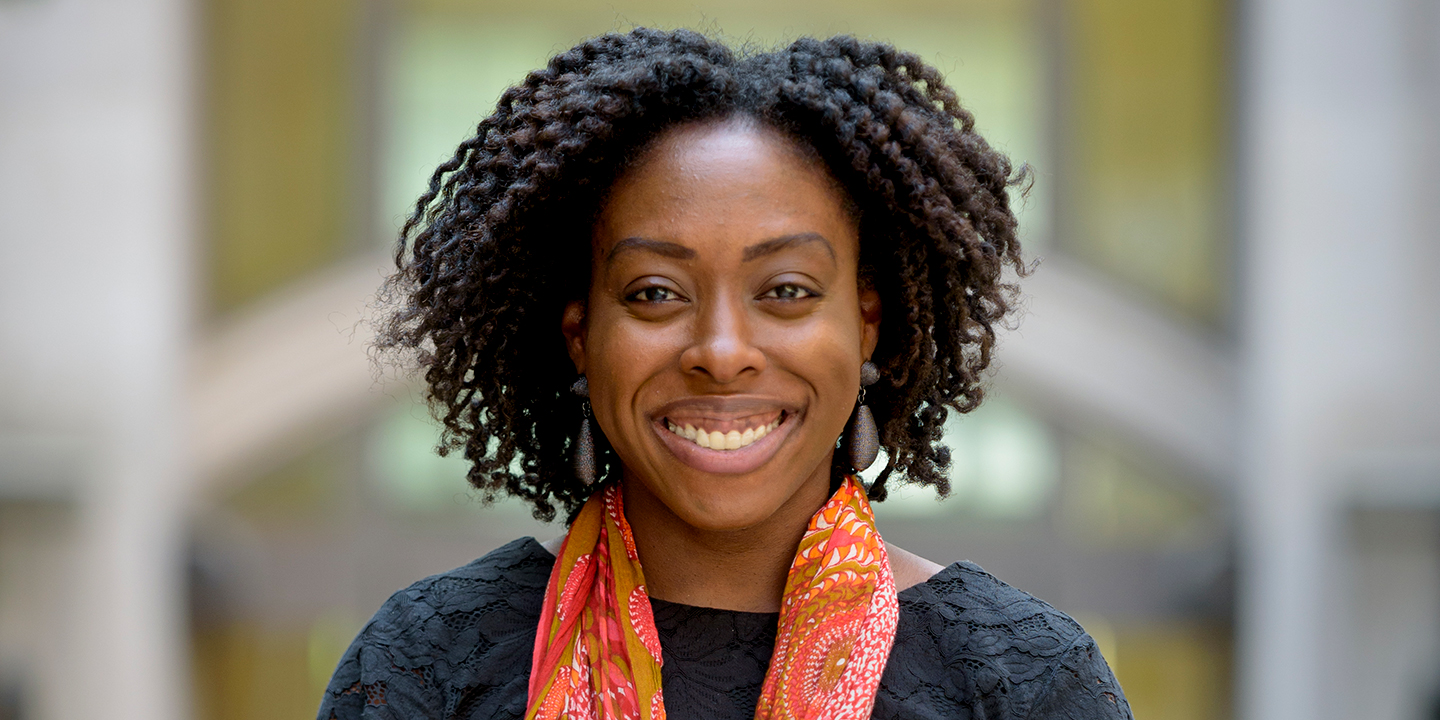Robin Brewer
Robin Brewer and the Future of Human-Computer Interaction
Brewer, who earned her PhD in Northwestern’s Technology and Social Behavior program, discussed her career and the future of human-computer interaction.

Robin Brewer, who earned her undergraduate degree from the University of Maryland and her master’s from the University of Maryland, Baltimore County, expected to leave Northwestern’s PhD program in Technology and Social Behavior (TSB), a joint doctoral program between Computer Science and Communication Studies, and head straight into industry as a user experience researcher.
Despite internships at IBM Research, Facebook, and Microsoft Research that let her explore different industry research positions, as graduation neared Brewer applied to academic and industry positions, and received offers from both sectors. Ultimately, she chose academia, serving first as a President's Postdoctoral Fellow at the University of Michigan, and now as an assistant professor at the University of Michigan’s School of Information.
Why did you choose Northwestern?
I saw my would-be adviser, Anne Marie Piper, assistant professor of communication studies and (by courtesy) computer science, present at the 2013 Association for Computing Machinery’s Computer-Supported Cooperative Work and Social Computing Conference about technology use by 105-year-olds. I thought it was interesting. Much of the research I had seen within human-computer interaction (HCI) focused on the digital experiences and needs of youth or younger adults. She also said she was recruiting PhD students. I approached her immediately after her talk and asked if I could learn more, and soon found myself admitted to the program.
What was the experience like?
Within my first year, I found a community of other students through my cohort and the Black Graduate Student Association that made moving to a new city, where I knew no one, a lot better. Faculty and staff outside of my program, like Penny Warren, then-assistant dean of student life and multicultural affairs at The Graduate School (TGS), Bruce Lindvall, assistant dean for graduate studies at McCormick, and later, Nsombi Ricketts, then-assistant provost for diversity and inclusion, also helped to form a strong support network. Being in a very interdisciplinary program like TSB was an added bonus because I was able to apply my background in computer science to the social sciences, learning new methods for doing research and different types of questions to ask.
What was the most important lesson you learned at Northwestern?
The value of community. My research was about designing interactive systems for older adults, and throughout my four years at Northwestern, I volunteered at an independent and assisted living community. These connections helped me to understand how research can be applied and how communities can be misrepresented in literature. For example, stereotypical perceptions of older adults push forward narratives of them lacking digital skills and only engaging with grandchildren using technology. However, engaging with the community and doing applied research showed me how infrastructural and political access challenges can, at times, affect technology use. Just like younger people, older adults are using technology in ways to innovatively discover new friendships or make new relationships.
What does the future hold for research into human-computer interaction?
Motivated by the continued racial unrest in the US, I have seen how HCI scholars are thinking about how to be more inclusive and equitable in their work. For example, the Critical Race Theory for HCI paper, co-authored by Northwestern TSB PhD student Angela Smith, was published just a few months ago and already has more than 2,000 downloads on the ACM Digital Library. The paper critiques how we include race in discussions on design. Similarly, more researchers are calling for the design of equitable, just, and fair AI-powered systems that better consider age, ability, gender, and race. I see this as the beginning of HCI designers and researchers prioritizing the needs of seemingly marginalized, but mostly rendered less visible, communities rather than research that centers around the needs of younger white men. It's all very exciting.
Back to top